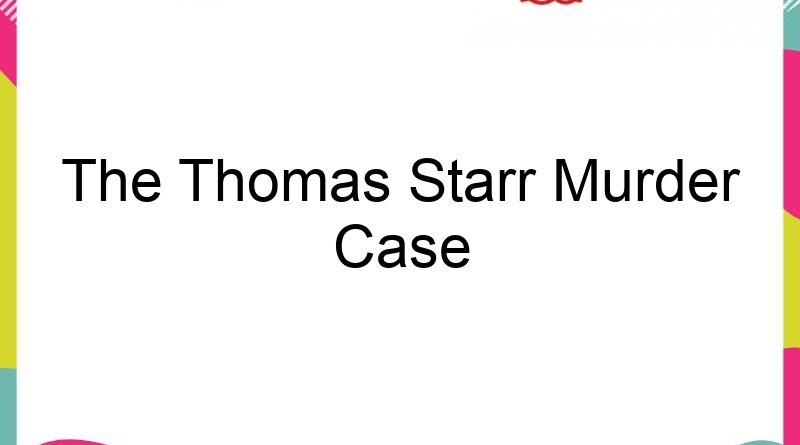The Thomas Starr Murder Case
During the American Civil War, Tom Starr was a member of the Confederate army. While serving in this capacity, he met William Clark Quantrill, a white lawyer who was trying to locate Indians who had gone missing. The two men were related through their ancestor, James Starr. The following year, Starr killed another man, David Buffington, with a hunting knife, before the gun cleared its holster.
The motive for Thomas Starr’s murder is unknown, and the victims were not identified until after the murders. Although the victims were separated from Starr when they died, authorities do not believe they were trying to prevent him from killing them. The slayings prompted the authorities to increase the reward for information in the case to $10,000.
Thomas Starr was convicted of aggravated murder, which involves premeditation and a plan for the crime. He was sentenced to life in prison without parole, and he has no chance of a new trial. However, his lawyer believes that the verdict will be far more severe, and he will fight the charges vigorously.
Tom Starr was a mixed-blood Cherokee and stood six-and-a-half feet tall. He weighed more than 200 pounds and was known to wear human ears as jewelry. The necklace was believed to be from men Starr killed. This is not the only clue to his murder, but it does suggest that he was an extremely disturbed man.
Starr King visited Yosemite in 1860, and wrote about the trip in eight letters. They were published in scattered issues of the Boston Evening Transcript. Starr King was a member of the Confederate Army, and was a man with an appetite for adventure. His passion for the California scenery prompted him to extend his stay in San Francisco. He had already planned a trip to Europe before his death, and said he would be back in California after two years.
The heirs of Dr. Thomas Starr’s will left him a large estate, which he split with his sister Elizabeth. The two had a son, John B. Starr, who was born on 31 Dec 1615. The will stated that Samuel Starr was entitled to a silver guilt double salt celler and PS50 sterling from the estate. However, he did not name Samuel Starr as executor of the will.



